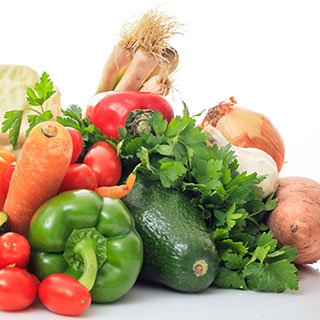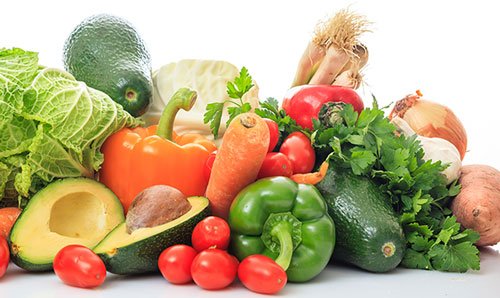How to eat healthy by avoiding processed foods
In today's fast-paced world, convenience often surpasses nutrition, leading many to reach for quick and easy processed foods. These foods, while convenient, usually come with a host of additives, preservatives, and artificial ingredients that can be detrimental to our health.

On the other hand, unprocessed foods are closer to their natural state and packed with essential nutrients that our bodies need to thrive. Embracing a diet rich in unprocessed foods can lead to better health outcomes, including improved energy levels, better digestion, weight management, and a reduced risk of chronic diseases such as heart disease, diabetes, and certain cancers.
The prevalence of processed foods
The modern diet is full of processed foods. These include sugary breakfast cereals, frozen dinners, and snacks loaded with preservatives. It's easy to see why many of us struggle to maintain a healthy diet. Processed foods are designed to be hyper-palatable, meaning they taste good and often leave us craving for more. However, these foods are usually low in essential nutrients and high in unhealthy fats, sugars, and sodium. Over time, a diet high in processed foods can lead to weight gain, inflammation, and various health issues.
Shifting to healthier eating habits
So, how can we shift our eating habits towards healthier, unprocessed foods? It might seem daunting, but it's achievable with a few practical strategies. Here are four key strategies to help you avoid processed foods:
- Shop the perimeter of your grocery store.
- Cook more meals at home.
- Read food labels carefully.
- Season your meals with herbs and spices instead of processed sauces and seasonings.
Grow your own food
Growing your own food is a fantastic way to ensure that you're eating healthy and being cost-effective. It's surprisingly simple, and you can quickly start with just a tiny section of your kitchen. There are numerous benefits to growing your own food, ranging from improved health and well-being to reducing your ecological footprint and supporting sustainability.
When you grow your own food, you have greater control over the entire process, including what goes into the soil, how your produce is grown, and when it's picked. This control level allows you to consume fresh, organic produce, which is often more nutrient-rich and flavorful than store-bought alternatives.
One of the most significant advantages of growing your own food is eating a wider variety of fresh fruits, vegetables, and herbs that might not be readily available at your local grocery store.
Additionally, growing your own food presents an opportunity to cultivate heirloom varieties and unique, flavorful vegetables not commonly found in commercial settings. This can introduce diverse flavors and textures to your plate, enhancing your culinary experience.
Growing your own food can save you money in the long run, as the initial investment in seeds, soil, and equipment is often outweighed by the abundance of produce you can yield in a small space.
By growing your own food, you are reducing your reliance on store-bought items, which can be particularly cost-effective for pricier items such as organic fruits and vegetables.
Aside from the economic benefits, growing your own food can positively impact your physical and mental well-being. Engaging in gardening can be a calming and meditative experience, offering a break from the stresses of daily life and allowing you to connect with nature. The physical labor associated with gardening can also provide valuable exercise, contributing to a healthy lifestyle.
Tending to plants, watching them grow, and harvesting the fruits of your labor can be incredibly rewarding, promoting a sense of accomplishment and happiness. With the increasing concerns about the environmental impact of conventional agriculture, growing your own food can be a sustainable and environmentally friendly practice.
By opting for organic growing methods and reducing the need for long-distance transportation and packaging, you are contributing to a smaller carbon footprint. Additionally, you can use environmentally responsible practices such as composting and water conservation to minimize waste and resource consumption.
Starting a small garden in your kitchen is an excellent way to grow your food in a limited space. Many herbs, such as basil, mint, and chives, thrive indoors and can be quickly grown on windowsills or countertops.
If you can access natural light, you can grow small varieties of tomatoes, peppers, and leafy greens in pots or containers. Vertical gardening solutions, such as hanging baskets and wall-mounted planters, can make the most of limited space and allow you to cultivate various plants in a compact area.
To start growing your own food in your kitchen, you'll need a few basic supplies. Seeds or starter plants, soil, containers, and adequate light are essential for a successful indoor garden. Consider researching the specific requirements of the plants you intend to grow, such as sunlight, watering needs, and temperature preferences, to ensure they thrive in your indoor environment.
Additionally, familiarize yourself with proper planting and care techniques to support the growth of healthy, productive plants. Growing your own food is a practical, rewarding, and sustainable endeavor with numerous benefits. From improved health and financial savings to reduced environmental impact and enhanced well-being, the advantages of cultivating your own produce are varied and far-reaching.
With just a tiny section of your kitchen, you can embark on a journey to discover the joys of gardening and enjoy the freshest, most flavorful fruits and vegetables all year round.
Shop the perimeter
One of the simplest ways to avoid processed foods is to shop the perimeter of your grocery store. The outer edges of most grocery stores are where you'll find fresh produce, meats, dairy, and other whole foods. These sections are filled with unprocessed or minimally processed items that form the foundation of a healthy diet.
When you shop the perimeter, you're more likely to fill your cart with fresh fruits and vegetables, lean proteins, and dairy products that have yet to be altered or loaded with unnecessary ingredients. For example, fresh broccoli or a bag of carrots is far healthier than a can of soup or a box of crackers from the inner aisles.
To make the most of your perimeter shopping:
Plan your meals around whole foods.
Create a shopping list focusing on fresh produce, lean meats, and dairy.
Avoid the temptation to venture into the aisles where processed foods are prominently displayed.
By sticking to the perimeter, you'll be less likely to impulse-buy unhealthy snacks and more likely to invest in nutrient-dense foods that support your health.
Cook at home
Cooking at home is another effective strategy for avoiding processed foods. You have complete control over your ingredients when you prepare meals at home. This means avoiding the additives, preservatives, and hidden sugars often found in restaurants and pre-packaged foods.
Home-cooked meals don't have to be complicated or time-consuming. With some planning, you can prepare delicious and nutritious meals that fit your busy schedule. Start by planning your weekly menu and making a grocery list based on the meals you intend to cook. Batch cooking and meal prepping can also save you time and ensure you have healthy options throughout the week.
Experimenting with new recipes can make cooking at home more enjoyable and keep your meals interesting. The joy of discovering new flavors and dishes can make cooking at home a delightful experience.
Try incorporating a variety of vegetables, whole grains, and lean proteins into your meals. Not only will this help you avoid processed foods, but it will also ensure you're getting a wide range of nutrients to support your health.
Read labels
While avoiding processed foods is ideal, it's only sometimes practical. Sometimes, you'll need to buy packaged foods. When you do, it's crucial to read labels carefully. Understanding food labels empowers you to make healthier choices and avoid products with hidden sugars, unhealthy fats, and artificial ingredients.
Look for products with short ingredient lists that include recognizable, whole-food ingredients when reading labels. Avoid items with long lists of chemicals, additives, and preservatives. Be wary of marketing claims like "natural" or "healthy," which can be misleading. Instead, focus on the actual ingredients and nutritional information.
For example, if you're buying bread, choose one made from whole grains with minimal ingredients. Opt for nuts or seeds without added oils or sugars if you need a snack. By paying attention to labels, you can make more informed choices and reduce your intake of processed foods.
Season with herbs and spices
One of the best ways to add flavor to your meals without relying on processed sauces and seasonings is to use fresh herbs and spices. Herbs and spices are not only delicious but also packed with health benefits. They can enhance your food's flavor and provide various antioxidants, vitamins, and minerals.
Stock your kitchen with a variety of herbs and spices, both fresh and dried. Experiment with different combinations to find flavors you love. For example, fresh basil and oregano can transform a simple tomato sauce. At the same time, a sprinkle of cinnamon and nutmeg can add warmth to your morning oatmeal.
Growing your own herbs is another excellent way to ensure you always have fresh, flavorful options. A small herb garden can be maintained on a windowsill or balcony. It can provide a steady supply of fresh herbs to enhance your meals.
Here's the truth: Eating healthy by avoiding processed foods might seem challenging initially, but these four strategies make it much more manageable.
By shopping the perimeter of your grocery store, cooking more meals at home, reading labels carefully, and seasoning with herbs and spices, you can significantly reduce your intake of processed foods and improve your overall health.
These strategies help you avoid the pitfalls of processed foods and lead to a more nourishing and satisfying diet. Start small, make gradual changes, and enjoy the journey towards a healthier, more nutritious diet.





















































